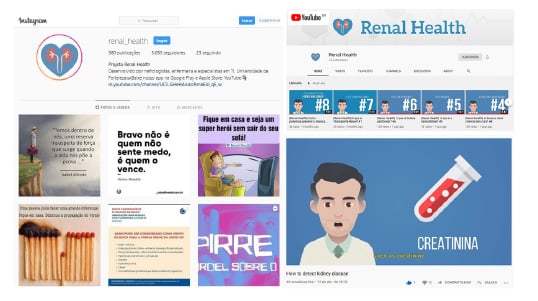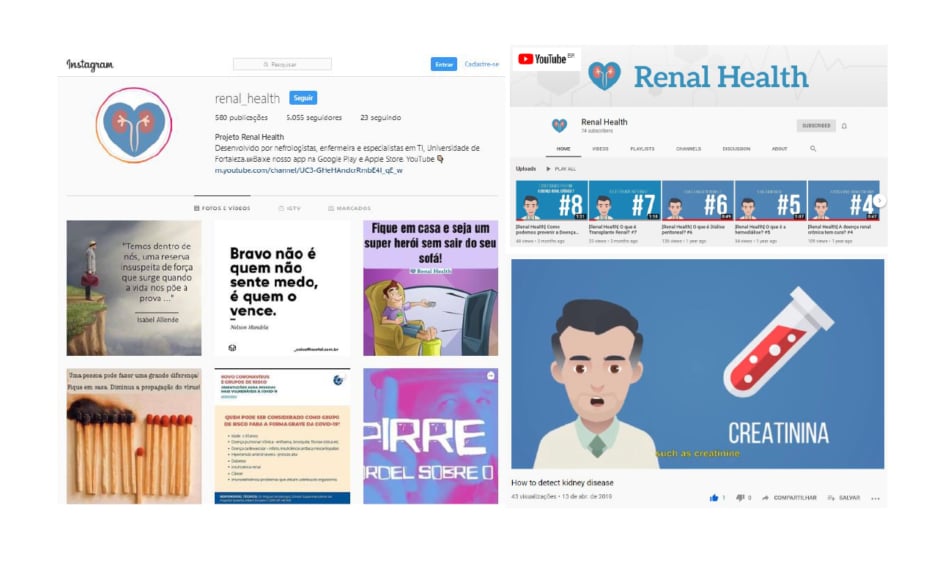Chronic kidney disease (CKD) is a growing problem in many parts of the world, with >700 million people affected.1 One of the main challenges in the management of patients with CKD is adherence to treatment, which greatly depends on patient education.2 Evidence from recent studies reveals that adherence to treatment, in the context of CKD, is associated with better outcomes, including decreased mortality.3 The authors started the Renal Health project in 2015, aiming to increase awareness of CKD in the general population and increase adherence to treatment for patients with CKD through digital education. This review presents strategies for patients’ health education using technology.
The first tool the authors created was an application for smartphones named Renal Health,4 which is now freely available for Android and iOS in English, Spanish, and Portuguese. This app is intended to help patients undergoing dialysis or renal transplant to better understand their disease, organise their treatment, and control their laboratory tests, diet, and all aspects of treatment. With better understanding, patients can achieve an improved adherence level to treatment.
The other strategies in the Renal Health project provide health education through social networks and via the internet, periodically updated by renowned health professionals, to increase patients’ knowledge of all aspects of their kidney diseases, from its risk factors, causes, and prevention to treatment, dialysis, and transplantation.5 In 2018, the project launched a profile on Instagram6 and a channel on YouTube7 (Figure 1). After 18 months, the project achieved >5,000 followers on its Instagram profile, and evaluation of received feedback is currently ongoing (almost all of which was positive, supporting a good impact in patients’ lives by improving their lifestyle). Regarding the YouTube channel, the intention was to provide short videos with information about different aspects of kidney diseases, from prevention to specific parts of treatment. At time of writing, eight videos have been published and have >500 views.

Figure 1: A) The Renal Health Instagram profile;6 and B) YouTube channel.7
The next steps of this project are to test the Renal Health application with a large number of patients on dialysis and patients having undergone renal transplant, to investigate the impact on clinical outcomes and to evaluate the impact of digital health education. This will be achieved by first identifying the project’s audience, and then assessing if it is effective in slowing the progression of CKD for those in conservative treatment or reducing complications for those in dialysis or post-transplantation.








